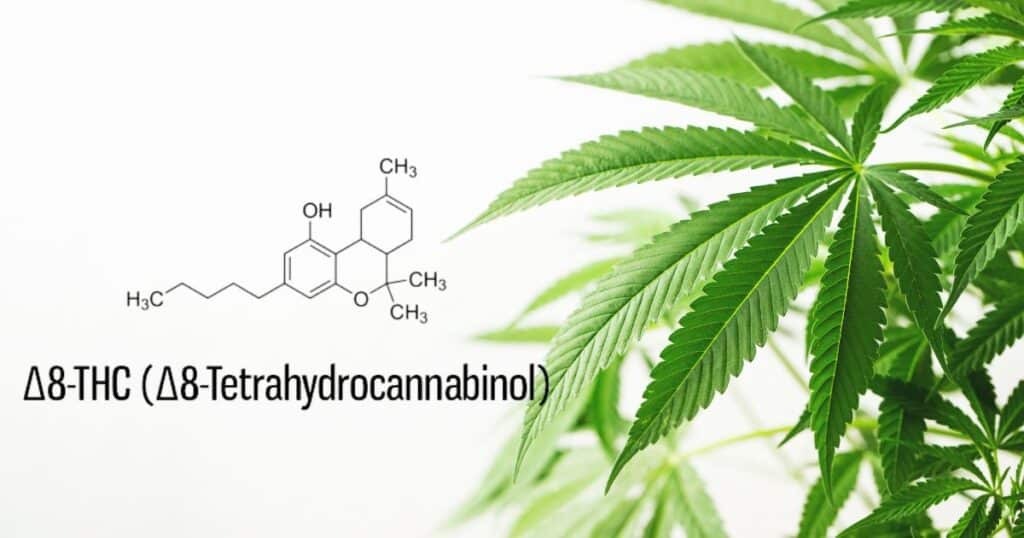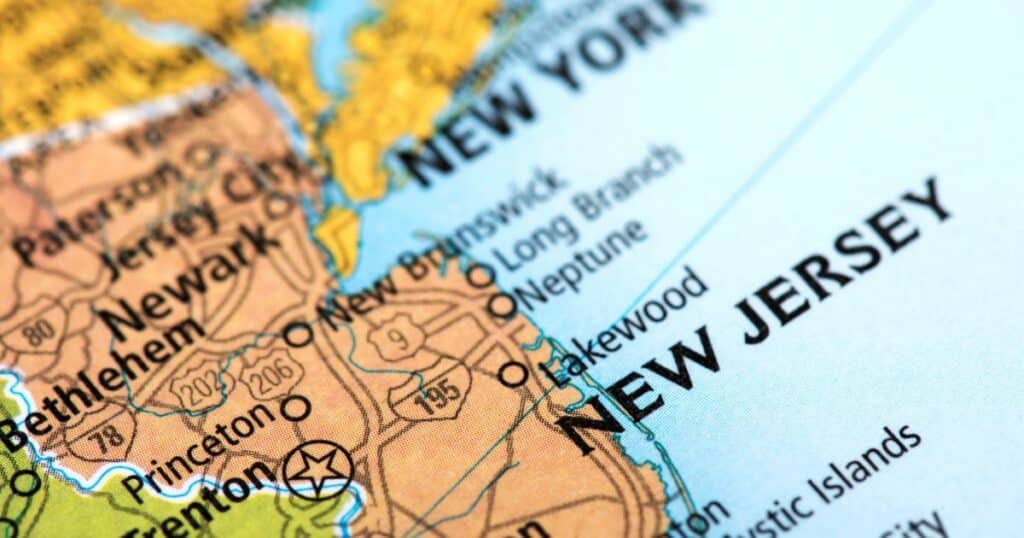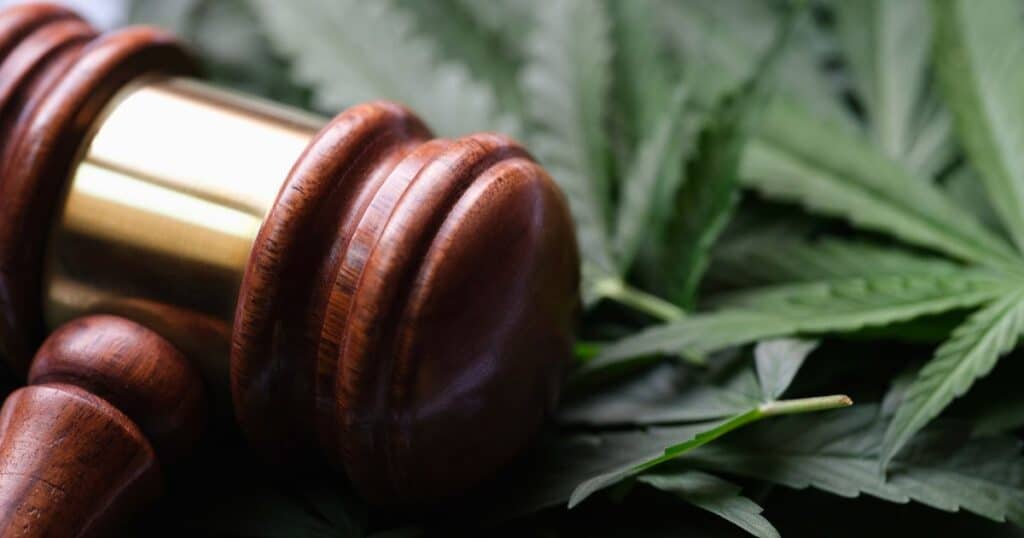New Jersey – In an era where cannabis products are becoming more mainstream, clear regulations are paramount to ensure safety and compliance. New Jersey Bill S3235, recently reported by the New Jersey Monitor, seeks to address the emerging market of Delta-8 and other intoxicating hemp products. This bill aims to regulate their production, sale, and distribution within the state.

Need for Regulation?
Stores resembling dispensaries are appearing throughout New Jersey, stocking CBD lotions, Delta-8 gummies, and other hemp products. Unlike legal cannabis dispensaries, these retailers operate without stringent regulations or oversight. This creates potential risks for consumers, particularly teenagers who might have easy access to these unregulated products.
Scott Rudder of the New Jersey CannaBusiness Association via New Jersey Monitor captures the dilemma
“The main intent I think we would all agree to is that there is a phenomenal amount of unregulated, unlicensed, untested cannabis products on gas station shelves, convenience store shelves, and they don’t go through any regulated process. Teens have access to this, and this bill attempts to capture that to prevent that.”
Bill S3235 aims to bring these hemp products under the same regulatory framework as cannabis products, ensuring they meet specific safety and quality standards.
Key Features of New Jersey Bill S3235
Licensing and Compliance
Under current laws, three entities within the state have jurisdiction over the cannabis plant:
- Cannabis Regulatory Commission (CRC): Regulates adult-use and medical cannabis.
- Department of Agriculture: Oversees hemp cultivation and processing.
- Attorney General’s Office: Enforces criminal penalties against illegal marijuana and THC sales.
Bill S3235 synchronizes the definitions of hemp, hemp products, and THC to regulate the sale of intoxicating hemp products. This synchronization clarifies the roles of each agency:
- The CRC will regulate the sale of all legally produced intoxicating cannabis items, whether hemp or cannabis.
- The Department of Agriculture will continue to regulate the cultivation and processing of hemp as an agricultural commodity.
- The Attorney General’s Office will maintain jurisdiction over illegally produced marijuana and THC, including any businesses or individuals who fail to sell cannabis items through a licensed retailer.
To sell intoxicating hemp products, businesses will need to be licensed as Class 5 Cannabis Retailers, subjecting them to product testing, labeling requirements, and age restrictions.
Legal Framework Amendments
The bill amends the “New Jersey Hemp Farming Act,” setting limits on the amount of THC that can be sold in hemp products. These limits are:
- A total THC concentration of not more than 0.3% on a dry weight basis.
- No more than 0.5 milligrams of total THC per serving.
- No more than 2.5 milligrams of total THC per package.
“Total THC” includes all tetrahydrocannabinols in a cannabis item, such as Delta-8, Delta-9, Delta-10, tetrahydrocannabinolic acid, and any other chemically similar compounds.
Unlicensed Sale and Penalties
The bill prohibits the sale or distribution of hemp products unless the seller is licensed by the CRC and the product complies with CREAMMA and any CRC regulations. Additionally, it is unlawful to sell or distribute a product containing THC to anyone under the age of 21.
Penalties for violating these provisions are as follows:
- First Offense: A fine of not less than $100.
- Second Offense: A fine of not less than $1,000.
- Third Offense: A fine of not less than $10,000.
Each product sold in violation constitutes a separate offense.
The bill allows authorized officials, including law enforcement officers, to issue summonses for any violations. Additionally, the CRC, in consultation with the Division of Consumer Affairs and the Business Action Center, will develop and implement a public education program for businesses regarding the new regulations.
Reactions to New Jersey Bill S3235
The bill advanced out of the Senate Judiciary Committee with a 6-2 vote, facing both support and criticism during nearly an hour of testimony. While most testimonies supported the bill’s goals, opinions varied on its specifics.
Many industry professionals agreed on the need for regulation to ensure consumer safety and product quality. Regulating hemp products alongside cannabis ensures consistency and reliability in the market.
Critics argue that the bill’s THC caps are too restrictive. For example, the limit of 2.5 milligrams per package is seen by some as too low to be effective. Additionally, representatives from the brewery and liquor industries expressed concerns about the bill’s impact on their ability to sell low-dose hemp drinks.
Eric Orlando from the Brewers Guild of New Jersey suggested allowing alcohol licensees to apply for a cannabis license for manufacturing or selling hemp beverages.
“We’re not opposed to regulating these products, but we think we should afford local manufacturers the ability to produce and sell these beverages,” he said, per New Jersey Monitor.
Michael Halfacre, executive director of the Beer Wholesalers Association of New Jersey, believes hemp drinks should be regulated by the Division of Alcoholic Beverage Control, noting that these products are packaged, shipped, and sold similarly to beer.
“These products are packaged like beer. They’re shipped, delivered, and stored like beer. They’re intoxicating like beer and are marketed and sold in many other states like beer. There is no reason to treat them radically different here in New Jersey,” Halfacre said.

Market Flood and Regulatory Crackdown
The emergence of Delta-8 and other intoxicating hemp products can be traced back to the 2018 Farm Bill, which legalized hemp and its derivatives.
This legislative change inadvertently opened the door for products containing psychoactive cannabinoids like Delta-8 THC, leading to a rapid influx of these items on the market. Consumers swiftly embraced these products for their milder psychoactive effects compared to Delta-9 THC found in traditional cannabis.
However, the lack of initial regulation resulted in significant concerns about the safety, quality, and consistency of these hemp-derived products.
States have since recognized the need for stricter controls to protect consumers and maintain market integrity. Recently, Florida has taken a particularly stringent approach by trying to ban Delta-8 products outright.
The evolving regulatory landscape underscores the importance for businesses and consumers alike to stay informed and compliant with state-specific laws to navigate this dynamic industry successfully.

















